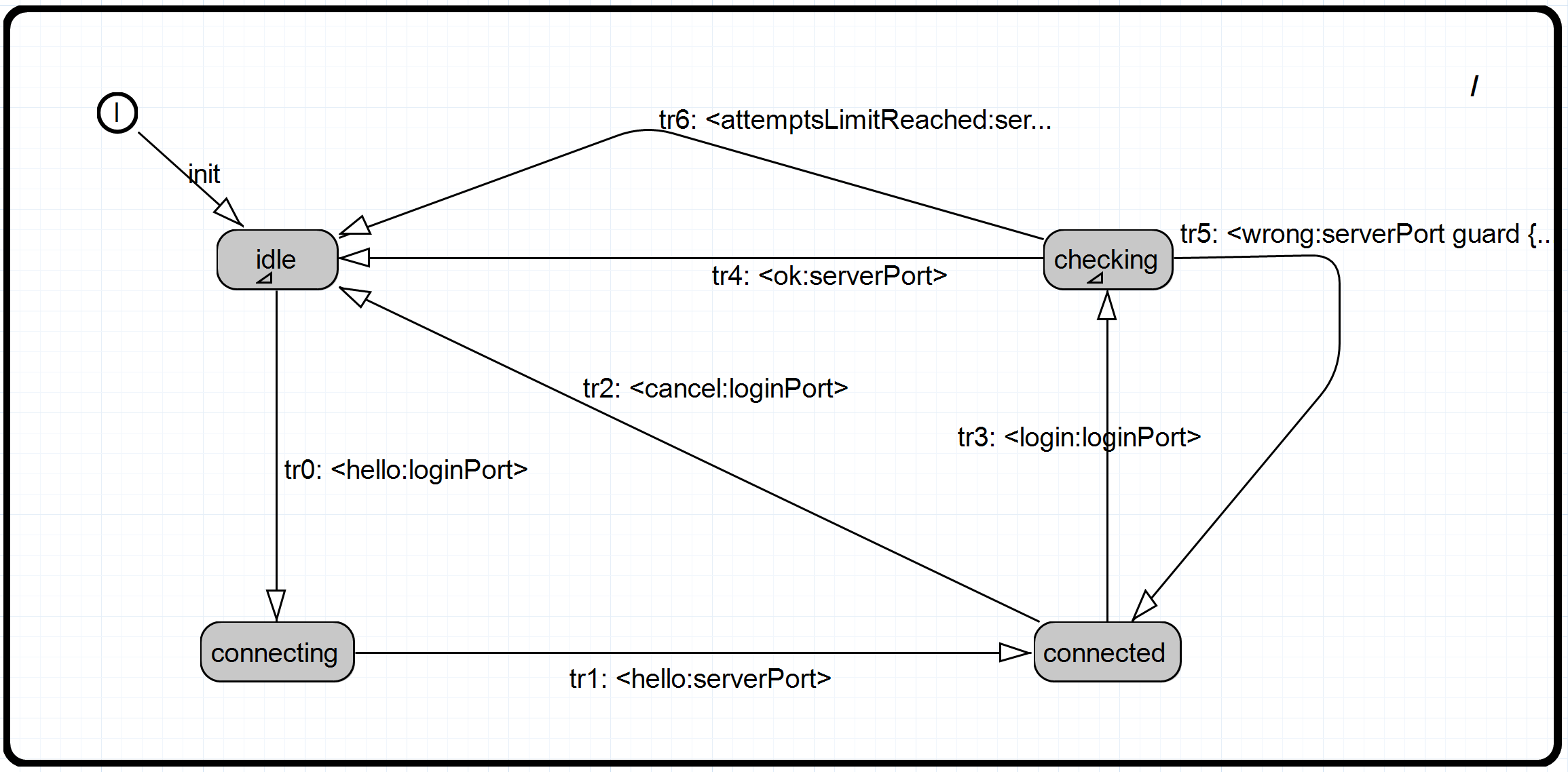Interface Contracts
An interface contract defines the behavioral semantics of an interface. In many languages like Java or C++ this is usually described in form of text comments. Textual descriptions are informal and have a vague expressiveness for complex behavior. Also it is difficult to leverage them for tooling or analysis.
eTrice provides a formal description for interface protocols. This is shown by the example of PLoginProtocol. It is a stateful protocol that defines the login procedure of an ATM client and the ATM server back-end.
ProtocolClass PLoginProtocol {
incoming {
Message hello()
Message login(int16)
Message cancel()
}
outgoing {
Message hello()
Message wrong()
Message attemptsLimitReached()
Message ok()
}
}

The implementing parties for this protocol must obey strict rules due security and compatibility reasons. For example, the client must initiate any interaction by sending the message hello. The server must then response in turn by hello. After that the client can login with an ID, which can be wrong (maximum 3 times) or ok. Also there are rules for cancel or attemptsLimitReached and the restart.
In eTrice, these semantics can be expressed using a state machine. The full contract for PLoginProtocol is shown in the screenshot below.

Defining Contracts
The contract is defined using a regular state machine, which requires first an ActorClass. This actor must be annotated with @InterfaceContractDefinition including the attribute protocol to specify the interface protocol. Further, the actor must implement a pair of regular and conjugated ports of the protocol. These two ports represent the two implementing parties of the protocol. After that, the contract can be created as the behavior of the actor. Be reminded, that the state machine does not represent an implementation, but the valid interaction for the protocol.
ActorClass LoginProtocolContract {
@InterfaceContractDefinition(protocol = "PLoginProtocol")
Interface {
conjugated Port serverPort: PLoginProtocol
Port loginPort: PLoginProtocol
}
Structure {
external Port serverPort
external Port loginPort
}
Behavior {
StateMachine {
// the contract state machine goes here
// see diagram above
}
}
In addition the protocol can be annotated with @InterfaceContract to reference the contract. This is for documentation purpose or future static analysis.
ProtocolClass PLoginProtocol {
@InterfaceContract(definedBy = "LoginProtocolContract")
// ...
}
Both annotation can be found in the modellib under the namespace etrice.api.contracts.definitions.
Contract Monitor Generation
It is possible to generate a monitor, that can check the contract at runtime. The generator transforms any contract to an ActorClass, which can be placed between the implementing parties to detect any violation of the contract.

The generator is called "eTrice Contract Monitor Generator". The usage is similar to the eTrice source code generators. By default the generated models are placed in the folder 'model-gen'. The name of the generated ActorClass can be adjusted in the contract annotation @InterfaceContractDefinition using the attribute generatedMontiorName.
The generated monitor implements PContractMonitorControl, which can be used to query the violations status or to toggle the propagation of invalid messages. It can be found in the modellib under the namespace etrice.api.contracts.monitors.